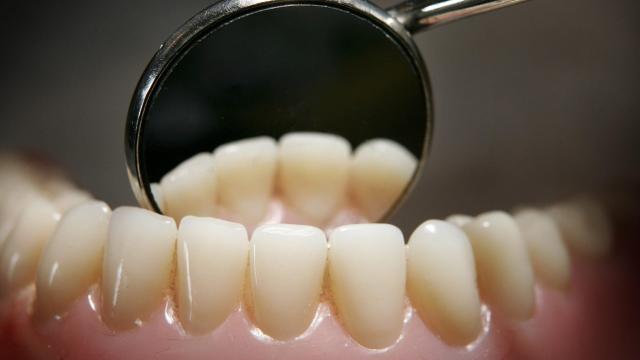The more teeth you lose over a lifetime, the greater your odds of developing dementia, a new review of existing evidence suggests. However, older adults who get dentures to replace their lost teeth may be better protected against this increased risk.
Research continues to show a possible connection between the health of your teeth and gums and other parts of the body, particularly the heart and brain. But a single study or two usually isn’t enough to provide clear proof of a cause-and-effect relationship between two things, which is why scientists regularly conduct meta-analyses of previous research to get a better sense of the body of evidence (of course, even meta-analyses have their limitations).
Researchers from New York University decided to do just that, looking at 14 studies of older adults that tried to examine the connection between tooth loss and cognitive function. In total, these studies tracked the long-term health of around 34,000 participants, during which time there were 4,600 documented cases of cognitive decline.
Overall, the researchers found that tooth loss was associated with cognitive decline. But this relationship grew in strength the more teeth were lost — something that scientists call a dose response effect. Even after controlling for other risk factors, the researchers found that greater tooth loss was associated with a 48% higher risk of cognitive decline and a 28% higher risk of being diagnosed with dementia. This risk was greatest for people who lost all their teeth, but it was non-significant for people who lost their teeth but then had used dentures.
“Moderate-quality evidence suggested tooth loss was independently associated with cognitive impairment and dementia,” the researchers wrote in their paper, published this week in The Journal of Post-Acute and Long-Term Care Medicine.
There are various theories for how poor dental health could be tied to our brain health. Chronic inflammation from ongoing gum disease may raise our vulnerability to the complicated process in the brain that kickstarts dementia, for instance. Yet there’s also the possibility that there’s no direct relationship at all between the two. Perhaps there are other major factors in a person’s life that both explain why people lose their teeth and experience cognitive decline, such as a lack of good healthcare. But finding a dose response effect in these studies does lend support to the idea that keeping our teeth healthy directly influences dementia risk, at least on some level. It’s this same dose response effect that lets us know, for instance, whether a potential new drug in a clinical trial is actually doing what it’s supposed to be doing.
If the findings are validated by continued research, then they may also point to a low-cost but effective way to keep people’s brains healthier into their later years, the researchers say, both in promoting good dental health throughout our lives and in promptly taking care of people who do lose their teeth. It’s estimated that as many as one in every 10 Americans over the age of 50 have lost all their teeth.
“Our findings underscore the importance of maintaining good oral health and its role in helping to preserve cognitive function,” said senior author Bei Wu, Dean’s Professor in Global Health at NYU’s Rory Meyers College of Nursing, in a statement released by the university.
This is actually one of two studies out this week to find a relationship between oral health and dementia. On Friday, research funded by the National Institutes of Health found that older adults diagnosed with gum disease and other mouth infections were more likely to later develop Alzheimer’s.
